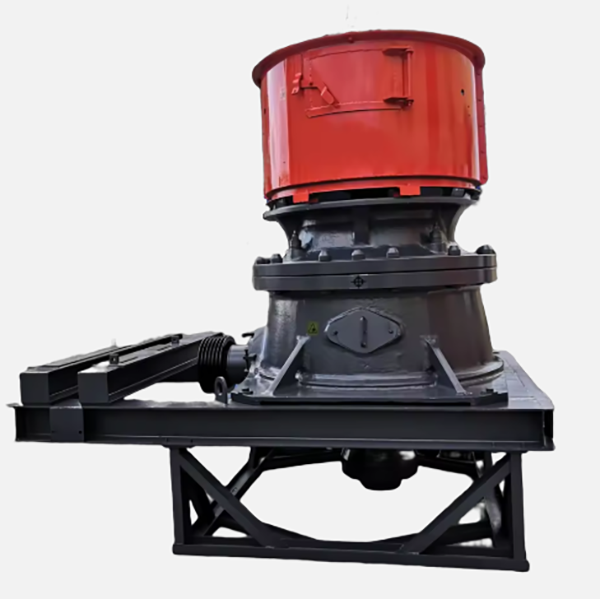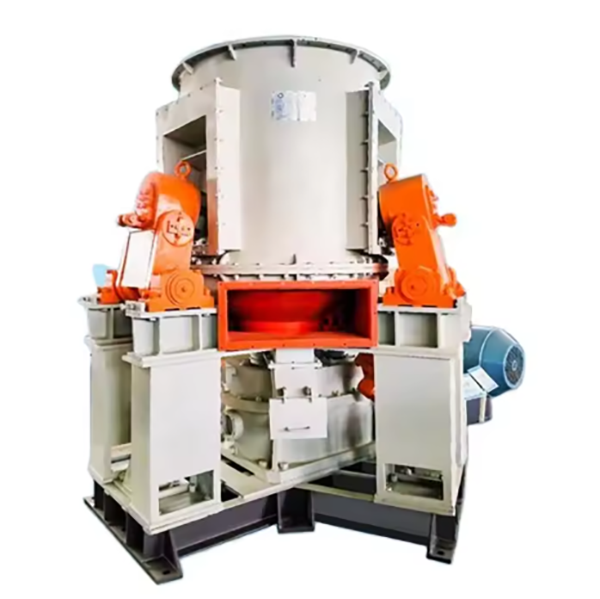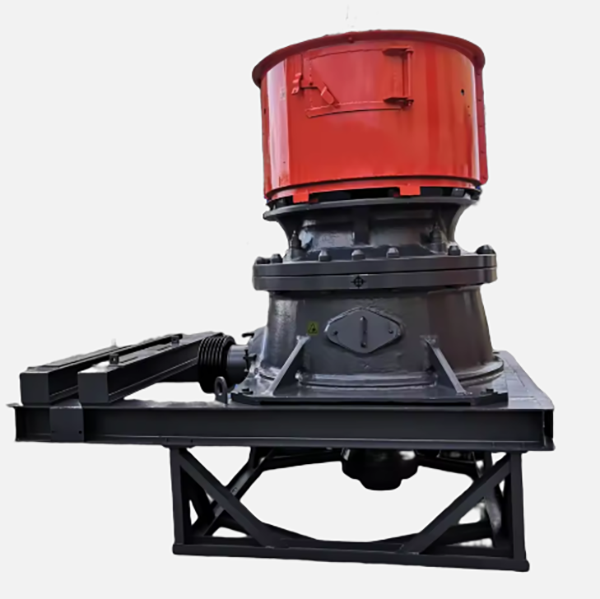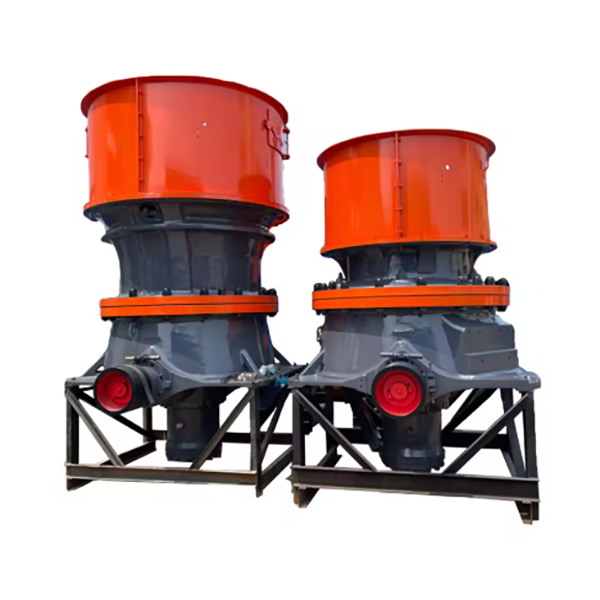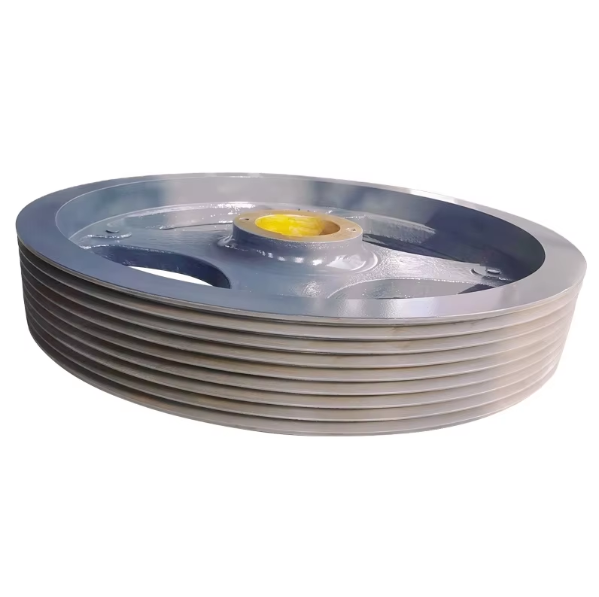Flywheel of jaw crusher
The flywheel is a key energy-storage and transmission component in jaw crushers, mounted on the eccentric shaft to balance load fluctuations, store energy, and ensure stable operation via its rotational inertia. It is typically disc-shaped with a shaft hole (matching the eccentric shaft) and pulley grooves, made of gray cast iron (HT250/HT300) or ductile iron (QT450-10/QT500-7) depending on load requirements.
Its manufacturing involves casting (sand casting with mold preparation, melting/pouring at 1380–1450°C, heat treatment for stress relief), machining (rough/semi-finishing of outer circles, inner holes, and pulley grooves, followed by precision grinding to achieve H7 tolerance and Ra ≤1.6μm surface roughness), and dynamic balancing (G6.3 grade to ensure residual unbalance ≤10g·cm).
Quality control includes material inspection (chemical composition and mechanical properties), casting defect detection (MT/UT for cracks/porosity), machining precision checks (dimensional/geometric tolerances), and final dynamic balance verification. These measures ensure the flywheel’s reliability in high-speed rotation, with a service life of 8–10 years, critical for crusher stability.
More

